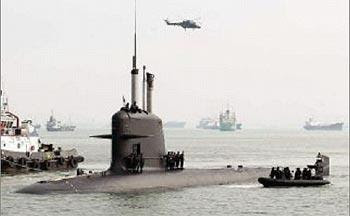CIA interrogation report: The 20 key findings
The US Senate Intelligence Committee has released a
summary of a report into the CIA interrogation program established by US spy
chiefs after the terror attacks of 11 September 2001.
The full report is 6,000 pages long and the unclassified summary is 480
pages - but it highlights 20 key findings.
What did
the Senate committee find out?
1) The
CIA's use of "enhanced interrogation techniques" was not an effective
means of acquiring intelligence or gaining co-operation from detainees.
2)The
CIA's justification for the use of its enhanced interrogation techniques rested
on inaccurate claims of their effectiveness.
3) The
interrogations of CIA detainees were brutal and far worse than the CIA
represented to policymakers and others.
4) The conditions of confinement for CIA detainees were harsher than the CIA
had represented to policymakers and others.
5) The CIA repeatedly provided inaccurate information to the Department of
Justice, impeding a proper legal analysis of the CIA's Detention and
Interrogation Program.
6) The CIA has actively avoided or impeded congressional oversight of the
programme.
7) The CIA impeded effective White House oversight and decision-making.
8) The CIA's operation and management of the programme complicated, and in
some cases impeded, the national security missions of other executive branch
agencies.
9) The CIA impeded oversight by the CIA's Office of Inspector General.
10) The CIA co-ordinated the release of classified information to the media,
including inaccurate information concerning the effectiveness of the CIA's
enhanced interrogation techniques.
11) The CIA was unprepared as it began operating its Detention and
Interrogation Program more than six months after being granted detention
authorities.
12) The CIA's management and operation of its Detention and Interrogation
Program was deeply flawed throughout the programme's duration, particularly so
in 2002 and early 2003.
13) Two contract psychologists devised the CIA's enhanced interrogation
techniques and played a central role in the operation, assessments, and
management of the CIA's Detention and Interrogation Program. By 2005, the CIA
had overwhelmingly outsourced operations related to the programme.
14) CIA detainees were subjected to coercive interrogation techniques that
had not been approved by the Department of Justice or had not been authorised
by CIA headquarters.
15) The CIA did not conduct a comprehensive or accurate accounting of the
number of individuals it detained, and held individuals who did not meet the
legal standard for detention. The CIA's claims about the number of detainees
held and subjected to its enhanced interrogation techniques were inaccurate.
16) The CIA failed to adequately evaluate the effectiveness of its enhanced
interrogation techniques.
17) The CIA rarely reprimanded or held personnel accountable for serious and
significant violations, inappropriate activities, and systemic and individual
management failures.
18) The CIA marginalised and ignored numerous internal critiques,
criticisms, and objections concerning the operation and management of the CIA's
Detention and Interrogation Program.
19) The CIA's Detention and Interrogation Program was inherently
unsustainable and had effectively ended by 2006 due to unauthorised press
disclosures, reduced cooperation from other nations, and legal and oversight
concerns.
20) The CIA's Detention and Interrogation Program damaged the United States'
standing in the world, and resulted in other significant monetary and
non-monetary costs.
Source: http://www.bbc.com/news/world-us-canada-30401025
Source: http://www.bbc.com/news/world-us-canada-30401025


Comments